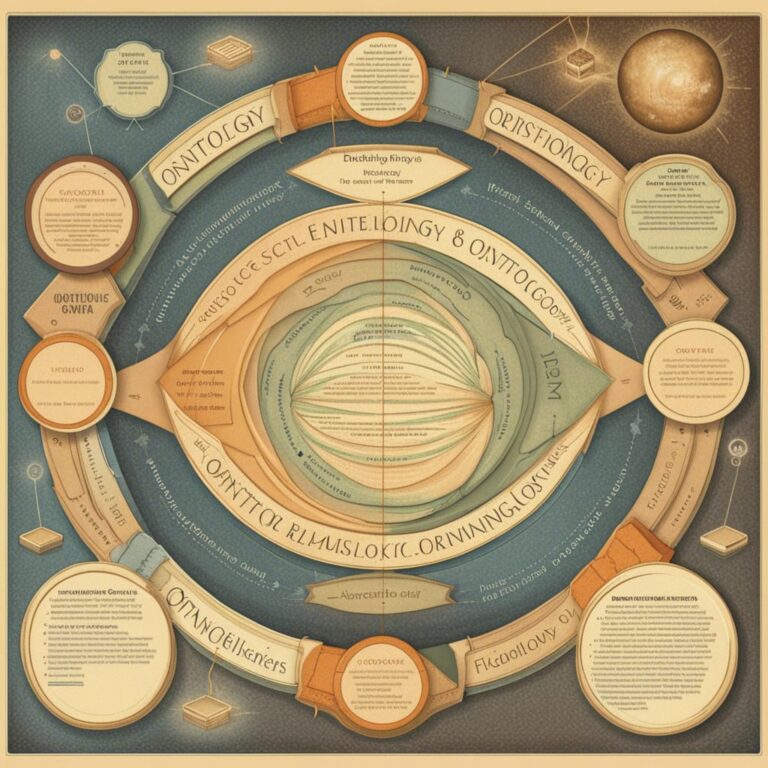
Philosophy, the pursuit of wisdom, has always been a fascinating and enlightening field of study. From ancient Greek philosophers to modern-day thinkers, humanity has grappled with profound questions about the nature of reality, the meaning of life, and the limits of human knowledge.
In this blog post, we will delve into some of the most intriguing deep philosophical questions and explore the best answers proposed by renowned thinkers. Join us on this intellectual journey as we attempt to unravel the mysteries of existence.
Intro
We all have days where we contemplate the big questions in life. But what are the deepest philosophical questions? And more importantly, what are the best answers to them?
The Meaning Of Life
The meaning of life is a question that has been asked by people throughout history. There are many different interpretations of what this means, but ultimately it is up to each individual to decide what the answer is for themselves. What happens when we die is another mystery that has yet to be fully understood.
Some believe that our soul lives in another realm, while others believe that our consciousness simply ceases to exist. No one knows for sure what happens after we die, but it is an experience that we all will go through at some point. The important thing is to live our lives in a way that is meaningful to us and to cherish the time we have with those we love.
Are Humans Good or Bad
Central to much philosophical debate is the question of whether humans are fundamentally good or bad. Are we innately prone to altruism or selfishness? Can our nature be changed, or are we destined to repeat the same mistakes throughout history? There is no easy answer to this question, as it depends on a complex interplay of nature and nurture. However, it is clear that humans have the capacity for both good and bad. We are capable of acts of great kindness, but we are also capable of causing immense suffering.
Ultimately, whether we lean more towards good or bad depends on the choices we make. If we choose to act with compassion and care, then we can create a force for good in the world. But if we allow ourselves to be consumed by hatred and greed, then we will only bring about more misery. The choice is ours.
Can We Know The Truth
How do we know what is true? The best way to find out what is true is to use our critical thinking skills to examine the evidence. Once we have evaluated the evidence, we can then make a reasoned judgment about what is likely to be true.
Of course, it’s always possible that we could be wrong, but that’s just part of being human. If everything we believe is wrong, then so be it. At least we tried to find out the truth.
What If There Is No God
If there is no God, then what happens to the soul? Does it simply cease to exist, or does it go on to some other realm? The answer to this question largely depends on one’s worldview. For those who believe in an afterlife, the idea of a soul surviving the death of the body is not particularly difficult to accept.
However, for those who do not believe in an afterlife, the idea of a soul surviving death is much more difficult to accept. The question of what happens to us after death is thus largely a matter of personal belief.
To Be Objective Or Not
It’s a common saying that we all see the world through our own rose-colored glasses. In other words, our experiences and biases always influence the way we see the world. While it might be impossible to have a completely objective view, it is possible to become more aware of our own biases and to try to step outside of them when necessary.
For example, if you grew up in a rural area and now live in a city, you might find the noise and bustle of city life overwhelming. But instead of writing off the city as a noisy and dangerous place, try to understand that your perception is shaped by your bias against rural areas. By recognizing our own biases, we can at least attempt to see the world more objectively.
Is Science Good
Science has provided us with a great deal of understanding about the universe and our place within it. By studying the stars, planets, and galaxies, we have been able to develop a model of the cosmos that is accurate on both a large and small scale. We now know that our sun is just one of the billions of stars in our galaxy, which is itself just one of the billions of galaxies in the observable universe.
On a smaller scale, science has also helped us to understand the human body and the way it works. Through research and experimentation, we have been able to develop cures for diseases, extend life expectancy and improve our quality of life. In many ways, science has given us a greater understanding of who we are and where we fit into the grand scheme of things.
Right From Wrong
How do we know what is right and wrong? It’s a question that has been asked throughout history and one that continues to perplex philosophers, theologians, and ordinary people alike. There is no easy answer, but there are a few theories that can help to shed some light on the matter.
One popular theory is the notion of natural law. This theory posits that there is an inherent sense of morality that is hardwired into our DNA. In other words, we innately know what is right and wrong because it is part of our nature.
Another common theory is utilitarianism, which holds that the morally correct course of action is the one that maximizes happiness or minimizes pain. In other words, we should do what will result in the greatest good for the greatest number of people. While there is no definitive answer to the question of how we know what is right and wrong, these theories can provide some helpful insights. And as for absolute morality, it remains an open question for each individual to decide.
Do Animals Have Souls
There is no clear consensus on the matter, and opinions range from animals being spiritual beings with immortal souls to them simply being biological machines with no consciousness or spiritual essence. The ancient Egyptians believed that all animals were sacred and that they were each imbued with a Ba or soul.
In contrast, the philosopher Aristotle believed that only humans had souls and that animals were merely soulless automatons.
The Hebrew Bible also offers conflicting views on the matter, with some passages suggesting that animals have Souls and others suggesting that they do not. Ultimately, there is no definitive answer to the question of whether animals have souls.
Is Time Travel Moral
The idea of time travel has always been a fascinating one, and it’s even more so now that we have the technology to make it a reality. But with this capability comes great responsibility: the power to change history. And that raises the question of whether or not it would be morally justifiable to do so.
On the one hand, there are compelling arguments for why we should intervene in historical events. For example, if we could go back and stop the Holocaust from happening, or prevent 9/11, wouldn’t that be worth it? On the other hand, there are also risks associated with changing history. We might unintentionally create new problems that are even worse than the ones we’re trying to solve. Or we could end up altering the course of history in ways that we can’t even foresee.
Ultimately, there is no easy answer to this question. It’s a dilemma that will continue to fascinate and challenge us as long as time travel remains a possibility.
Is Everything Knowable
On one side are those who argue that knowledge is unlimited and that, given enough time, we could eventually learn everything there is to know. On the other side are those who contend that there are some things that are intrinsically unknowable. This debate often focuses on the nature of reality and the human mind. Proponents of the former view argue that reality is objective and that the human mind has the ability to understand it completely.
Those in the latter camp contend that reality is subjective and that our minds are limited in their ability to comprehend it. Ultimately, there is no easy answer to this question. It may simply be a matter of perspective.
The Nature Of Consciousness
Consciousness, the essence of our subjective experience, remains a deeply mysterious phenomenon. The question of what gives rise to consciousness, often referred to as the “hard problem,” has puzzled philosophers and scientists alike. While various theories exist, ranging from physicalist approaches to dualistic perspectives, a complete understanding of consciousness remains elusive.
Exploring the nature of consciousness requires an interdisciplinary approach that combines philosophy, neuroscience, and cognitive science.
What Is Real?
Epistemology, the study of knowledge, raises the question of how we can be certain of what we perceive as reality. René Descartes famously doubted the existence of the external world, proposing that the only thing he could be certain of was his own existence as a thinking being (“Cogito, ergo sum”).
Philosophers have since explored different theories of knowledge, such as foundationalism, coherentism, and skepticism. While no theory provides an absolute answer, they offer valuable perspectives on the limits and reliability of human knowledge.
Conclusion
Deep philosophical questions challenge us to think beyond the surface of our existence and ponder the fundamental aspects of reality, knowledge, morality, and consciousness. While definitive answers may elude us, engaging with these questions can lead to personal growth, expanded perspectives, and a deeper understanding of ourselves and the world around us.
As we journey through life, let us embrace the beauty of philosophical inquiry and continue seeking wisdom in the face of these profound mysteries.





